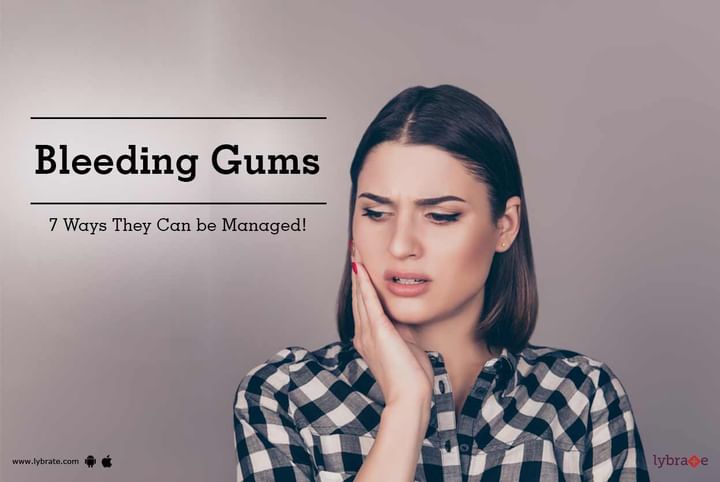Bleeding Gums - 7 Ways They Can be Managed!
If you see blood while brushing your teeth, do not ignore it; it could be a sign of gum disease. A build-up of plaque along the gum line is the main trigger for bleeding gums. If left untreated, it could lead to gingivitis or periodontitis which could further lead to the loss of teeth. Bleeding gums are also caused by:
- Vigorous brushing
- Bleeding disorders or use of blood thinners
- Hormonal changes during pregnancy
- Improper flossing
- Deficiency of vitamin K
- Tooth or gum related infection
- Ill-fitting dentures and braces
- Leukemia
- Scurvy
In most cases, bleeding gums can be treated at home. Here are a few tips.
- Use a soft bristle toothbrush. Ideally, you should brush your teeth gently after every meal, but if that is not possible, begin and end each day by brushing your teeth.
- Avoid mouthwashes that contain alcohol as this can worsen the condition. Instead, rinse your mouth with a warm saline solution or a hydrogen peroxide solution.
- Floss your teeth twice a day to prevent plaque build up. However be careful not to cut your gums.
- Avoid snacking between meals and cut back on your carbohydrate intake. Avoid added sugars as far as possible.
- Massage your gums with an oral irrigation device on a low setting. You could also put pressure on your gums with a gauze pad soaked in ice water to relieve the bleeding.
- Consult your dentist to check that your braces, dentures etc. are well fitted and are not rubbing against your gums or causing sores.
- Avoid aspirin and other blood thinners.
In some cases, these home remedies may not be enough. If you experience severe or long-term bleeding or any other symptoms along with the bleeding, you must consult a dentist immediately. Your dentist will be able to clean your teeth and remove all plaque and tartar on the tooth enamel and under the gum line that may be causing the bleeding. The doctor will also be able to examine the positioning of your teeth to ensure that there is no alignment problem that is reducing the effectiveness of brushing or flossing. Your dentist may also give you a few suggestions on how to overcome this problem. Regular cleaning and dental examinations are crucial to reversing bleeding gums and the diseases associated with it.
In case you have a concern or query you can always consult an expert & get answers to your questions!



+1.svg)
